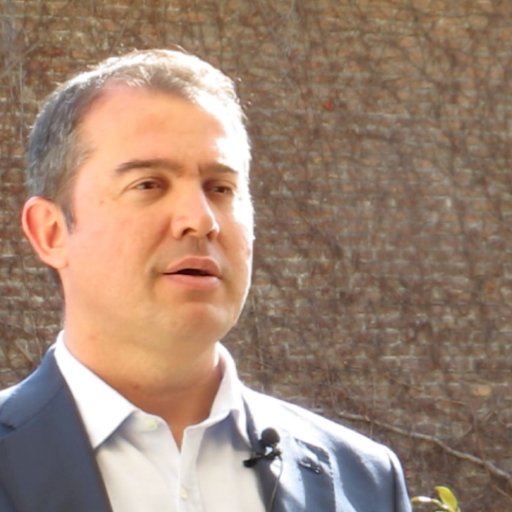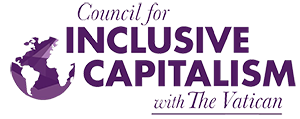BVA to support seven international financial education projects, among them Marcio Viegas’
BBVA’s Center for Financial Education and Capability’s grant program has selected the financial education research projects that will receive financing this year. One of the novelties of this edition is that seven grants will be given this year, instead of five like in previous years. A total of 40 projects from 23 countries were presented.
Despite the crisis caused by the outbreak of the global COVID-19 pandemic, BBVA EduFin Research Grants 2020 call for proposals managed to increase its geographic expansion and the number of applications received.
The amount of the grant will also be distributed differently this year with three awards of €10,000 each and four awards of €5,000. This distribution of funds will support the innovative research projects developed by local teams to encourage the researchers leading the projects to acquire skills. BBVA’s support will serve to launch their research and increase their local impact.
The seven selected projects belong to universities in Germany, Spain, the U.S., Indonesia, Israel, Kenya and the U.K. Their research covers a wide range of topics, from studies of the relationship between economic vulnerability and financial education, to the impact of knowledge on finances in entrepreneurship. Their approaches and methods are very diverse, all of the proposed projects delve into issues related to financial education and inequality, entrepreneurship and the circular economy.
The research teams have a little more than a year to conduct their research with the support of the BBVA Center for Financial Education Education and Capability. Support for research remains a priority line of work for the center, as the results of these and other data-based research projects are used to design programs and policies that will improve the lives of many people and their ability to take advantage of opportunities. The projects selected in this edition were:
1.- Economic vulnerability and financial education
Jacques Silber (Bar-Ilan University in Israel) is leading this research that studies the relationship between the economic deprivation of communities in Bolivia, Colombia, Peru and Ecuador and the lack of financial knowledge. The goal is to analyze the inequality of the economic situation among the different groups in the study and the relationship with financial illiteracy. The research will try to discover the amplitude of the inequality in financial education in the four countries analyzed and the factors that explain this inequality.
2.- Impact of financial literacy in secondary education
Secondary schools in the U.S. are offering sessions on finance to alleviate the low level of financial capability and economic inequality of the population. Led by Melody Harvey (University of Wisconsin – Madison in the U.S.), this study examines the impact this financial education has on the students’ lives and whether they remember it over time.
The study aims to analyze how the lack of equal access to financial education affects the population and what policies should be put in place to guarantee that all students benefit from this instruction.
3.- Influence of financial education in companies
Muyanja Ssenyonga Jameaba (Gadjah Mada University in Indonesia) is directing a research team that, thanks to the support from BBVA, will shed light on the relationship between financial education and innovation and business creation. The study will reflect the situation of the entrepreneurial ecosystem in Indonesia, which is still at a low level compared to other countries, despite significant progress in financial inclusion. The team is working with the thesis that increasing the level of financial education is fundamental to improving financial inclusion. They will therefore research the relationship between financial education, innovation, training and corporate performance and regional economic growth.
4.- Impact of financial knowledge on young entrepreneurs
The team from Bomet University in Kenya, lead by Clement Nkaabu, will address the role financial education plays in younger entrepreneurs between the ages of 18 and 35. In a country with high youth unemployment rates, the research aims to establish the level of financial education among the young entrepreneurs, the factors that motivate them to start a business, the relationship between gender and sustainable entrepreneurship and finally, the role of financial education in developing sustainable ideas and innovations.
5.- The role financial education plays in decisions related to the job market
Nurdilek Dalziel and his team’s (Montfort University in the U.K.) project consists of researching business schools’ support for financial education and how this knowledge influences the students’ interest in entrepreneurship. The study will focus on students at Bogazici University in Turkey who are currently deciding which job market options interest them, including the possibility of becoming an entrepreneur. The study will determine the extent to which their future will be marked by their financial education, their attitude regarding money, their financial ability to weigh risk and the opportunities that will affect their individual financial well-being and overall social inclusion.
6.- The relationship between the gender gap and financial education
The team captained by Maddalena Davoli (Goethe University in Frankfurt, Germany) will analyze the results of a survey of 6,000 adults originally from 26 countries living in the U.S., which revealed that there was a significant association between the gender gap in the country of origin and the gender gap in financial knowledge in the U.S. The goal is to delve into these results as the first step toward promoting the design of policies that seek to improve the financial knowledge of both women and men.
7.- Access to financing for businesses in the circular economy
Marcio Viegas’ team (IED Design School in Spain) is investigating what level of financial literacy is needed by startups that belong to the circular economy in order to convince investors, obtain the type of financing that is best for them and have a successful career. The research aims to determine the relationship between the lack of access to financing for these kinds of companies and their financial knowledge.
Originally published in https://www.bbva.com/en/bbva-to-support-seven-international-financial-education-projects/


We are a network of expert professionals on sustainability.
SUST4IN apoya:








